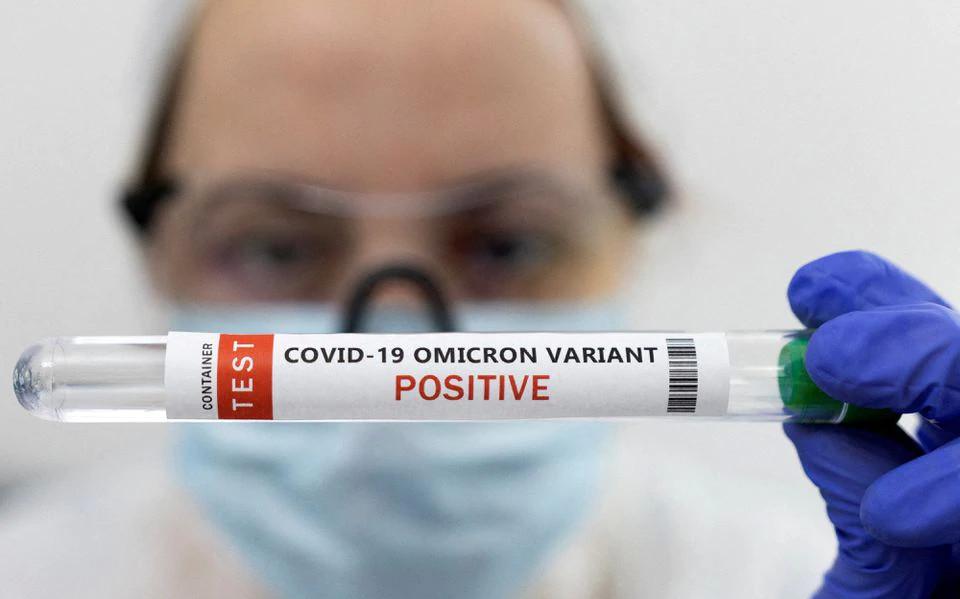According to Reuters reported on the 20th, disease control experts said that the spread of the Omikejon strain is much faster than the previous new coronavirus variant, but it is unlikely to help countries achieve the so-called "herd immunity" against the new crown virus, that is, when enough people are immune to a certain virus, the spread of the virus will be eliminated.

Test tube labeled "COVID-19 Omiljun strain test positive"
In the early days of the COVID-19 outbreak, public health officials in some countries expressed the idea that "herd immunity" was possible as long as a sufficiently high proportion of the population was vaccinated or infected with the new crown virus.
As the coronavirus rapidly mutates new strains over the past year, allowing people who have been vaccinated or previously infected to be re-infected, the hope of achieving "herd immunity" has become increasingly slim.
Since the Emergence of the Omiljung variant late last year, public health officials in some countries have revived the possibility of "herd immunity." They argue that the fact that the variant spreads so quickly and causes milder diseases may soon expose enough people to the coronavirus in a less harmful way and ultimately provide this "herd immunity" protection.
But disease control experts point out that the Omiljunn strain's ability to spread is due to the fact that it is more likely to infect people who have been vaccinated or have a history of infection than previous variants. This is further proof that the new crown virus will continue to pursue ways to break through human immune defenses.
Olivier le Polain, an epidemiologist at WHO, told Reuters that "given the experience we have gained in the pandemic, it may be unrealistic to say that if a theoretical threshold is reached or exceeded, the spread of the virus will stop." ”
David Wohl, an infectious disease expert at the University of North Carolina at Chapel Hill School of Medicine, said, "The rules of the game change when people who are vaccinated can still spread the virus and pass it on to others." He cautioned against thinking that infecting Ami kerong would increase protection, especially in the face of the next possible mutant.
Francois Balloux, a professor of computational systems biology at University College London in the United Kingdom, told Reuters that "there have been reports in the media: 'When 60% of the population is vaccinated, we will reach herd immunity.'" But that didn't happen. Then 80%, again, it didn't happen again. As scary as it sounds, I think we have to be prepared to face the fact that the vast majority of people, basically everyone, are exposed to COVID-19. (Edit: SDY)